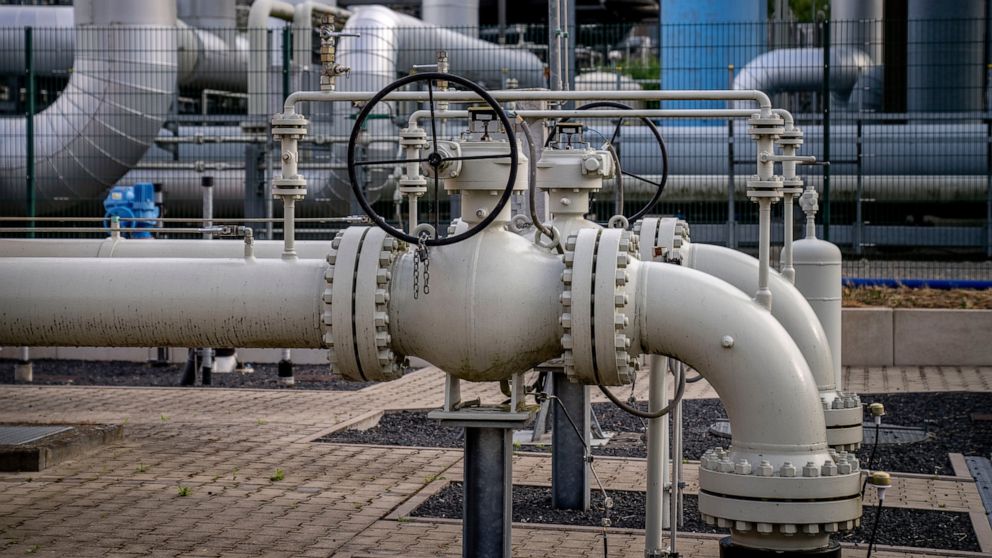BERLIN — Europe faced an energy crisis even before the Nord Stream 1 pipeline from Russia to Germany went offline for regular maintenance.
Government officials are bracing for the possibility that the key pipeline won’t restart Thursday as scheduled, saying Russian President Vladimir Putin is using energy for political leverage in his confrontation with the European Union over Ukraine.
Russia has already slashed Europe’s flows of natural gas used to power factories, generate electricity and heat homes in the winter, and Putin warns they could keep dwindling. The deliveries through Nord Stream 1 were cut by 60% before repairs began.
Even if the pipeline restarts at reduced levels, Europe will struggle to keep homes warm and industry humming this winter.
Here are key things to know about the energy crisis:
DID RUSSIA CUT OFF GAS TO EUROPE?
It has reduced supplies significantly. Even before the invasion of Ukraine, Russia was not selling gas on the short-term spot market. After the EU imposed drastic sanctions on Russia’s banks and companies and started sending weapons to Ukraine, Russian cut off gas to six member countries and reduced supplies to six more.
Flows into Germany, the EU’s biggest economy, through Nord Stream 1 were dialed back by two-thirds, with Russia blaming a part that was sent to Canada for maintenance and not returned due to sanctions. European leaders rejected that claim, saying it was a political gambit in retaliation for sanctions.
It has left the 27-member EU scrambling to fill gas storage ahead of winter, when demand rises and utility companies draw down their reserves to keep homes warm and power plants running.
The EU’s goal is to use less gas now to build storage for winter. Europe’s gas reserves are only 65% full, compared with a goal of 80% by Nov. 1.
WHY IS RUSSIAN NATURAL GAS SO IMPORTANT?
Russia supplied some 40% of Europe’s natural gas before the war. That has dropped to around 15%, sending prices through the roof and straining energy-intensive industries.
Gas is used across a range of processes that most people never see — to forge steel to make cars, make glass bottles and pasteurize milk and cheese.
Companies warn that they often can’t switch overnight to other energy sources such as fuel oil or electricity to produce heat. In some cases, equipment that holds molten metal or glass is ruined if the heat is turned off.
High energy prices are already threatening to cause…
Click Here to Read the Full Original Article at ABC News: Business…

